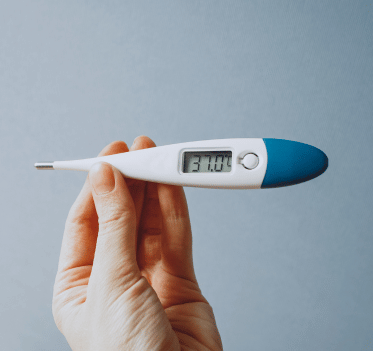From Understanding the Basics to Knowing When to Seek Medical Attention
Fevers are a common occurrence, often signaling that our bodies are fighting off an infection or illness. However, understanding what constitutes a fever, what it may indicate, and when to seek medical attention is crucial for maintaining optimal health. In this blog, we'll delve into the basics of fevers, debunk common misconceptions, explore what they can signify, and provide practical tips for managing fevers at home.
What is a Fever? A fever is defined as a temporary increase in body temperature, usually above the normal range of 98.6°F (37°C). It's a natural response by the body to fight off infections caused by viruses, bacteria, or other pathogens. When the immune system detects these invaders, it releases chemicals called pyrogens, which signal the hypothalamus in the brain to raise the body's temperature.
What's Not Really a Fever? Sometimes, people mistake slightly elevated temperatures for fevers. It's important to distinguish between a true fever and other factors that can cause a temporary rise in body temperature, such as:
- Exercise: Intense physical activity can lead to a temporary increase in body temperature, but it typically returns to normal shortly after.
- Hot weather: Exposure to high temperatures or humidity can cause the body to heat up temporarily.
- Stress: Emotional stress or anxiety can sometimes result in a slight increase in body temperature.
- Hormonal changes: Fluctuations in hormones, such as those that occur during menstruation, can cause a mild rise in body temperature.
What a Fever Can Mean: While fevers are often the body's natural response to infections, they can sometimes indicate more serious underlying conditions, such as:
- Infection: Fevers are commonly associated with infections like the flu, colds, urinary tract infections, and pneumonia.
- Inflammatory disorders: Conditions like rheumatoid arthritis or inflammatory bowel disease can sometimes cause fevers.
- Medications: Some medications may trigger fevers as a side effect.
- Heatstroke: Prolonged exposure to high temperatures without adequate hydration can lead to heatstroke, characterized by a high fever and other symptoms.
When to Seek Urgent Care: While most fevers can be managed at home, there are instances where seeking urgent medical care, such as Healthcare Express, is warranted. Consider visiting urgent care if:
- Your fever is consistently above 103°F (39.4°C) or lasts longer than three days.
- You experience difficulty breathing, severe headache, chest pain, confusion, or other concerning symptoms.
- The fever is accompanied by a rash, stiff neck, or sensitivity to light.
- You have a weakened immune system or underlying health conditions that may complicate the fever's management.
Tips to Manage a Fever at Home: If your fever is mild to moderate and you're otherwise healthy, you can try these home care tips to alleviate discomfort and promote recovery:
- Stay hydrated: Drink plenty of fluids like water, herbal teas, or electrolyte solutions to prevent dehydration.
- Rest: Allow your body ample time to rest and recuperate.
- Temperature control: Dress in lightweight clothing and use a fan or cool compresses to help reduce body temperature.
- Over-the-counter medications: Acetaminophen or ibuprofen can help lower fever and relieve associated symptoms like headache or body aches. Always follow dosage instructions and consult a healthcare professional if unsure.
Fevers are a natural response by the body to combat infections and illnesses. While most fevers can be managed at home with rest and supportive care, it's important to know when to seek medical attention, especially if accompanied by severe symptoms or underlying health conditions. By understanding what a fever is, what it can indicate, and how to manage it effectively, you can promote your well-being and aid in your body's recovery process.
